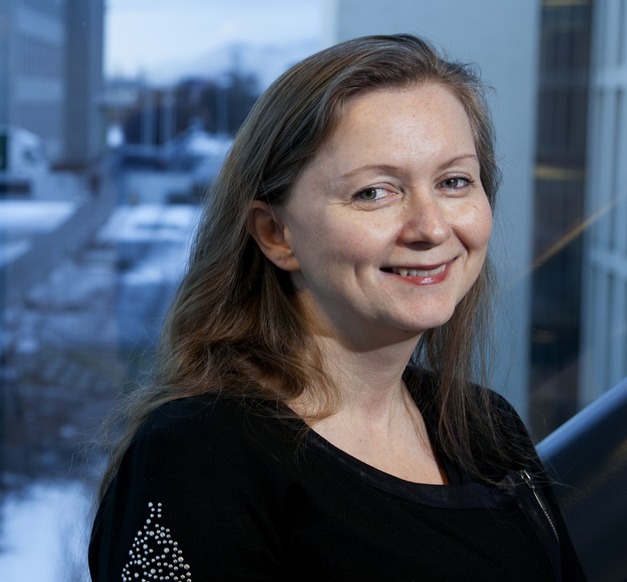Kristín Loftsdóttir, professor at the Faculty of Social and Human Sciences
What do the Icelandic Eurovision entry Silvía Nótt and minority groups in Africa have in common? They both influenced the research of Kristín Loftsdóttir, professor of anthropology, into ideas in Iceland on the international status of the country and nationalism in connection with the economic collapse.
"The inspiration for this research was an article that I wrote on how Silvía Nótt is a symbol for modern nationalism in conjunction with global changes. I have also been researching minority groups in Africa for a long time and that research has indicated that discourse on Africa in Icelandic media from the end of the nineteenth century and beginning of the twentieth century is not at all about Africa, but rather the national identity of Icelanders and their need to distance themselves from colonised nations," says Kristín.
Kristín Loftsdóttir
"When Icelandic economic expansion was at its peak, there was so much that was reminiscent of early twentieth-century thinking, such as the emphasis on masculinity and the national praise, which was perhaps excusable in the early twentieth century but was slightly embarrassing by the end of that century."

Kristín examines the economic crash in connection with nationalism and emphasises in particular the importance of how ideas about men and women manifest themselves and in what ways they involve discussion of older and newer ideas about racism. "I make particular use of so-called postcolonial theories and how Icelandic ideas about their land and nation have been shaped by the fact that Iceland was once a Danish colony and part of the Danish kingdom," says Kristín.
The results of the research show, for example, that Icelanders, like Nordic people in general, seem to be very firm on the idea that they had nothing to do with the age of empires and colonialism. These ideas echo the present day. "When Icelandic economic expansion was at its peak, there was so much that was reminiscent of early twentieth-century thinking, such as the emphasis on masculinity and the national praise, which was perhaps excusable in the early twentieth century but was slightly embarrassing by the end of that century," says Kristín.
The research explores modern Icelandic discourse on what it means to be an Icelander, in general but also in a global context, and asks what differentiates the discourse from discourse elsewhere in the world. "The goal is also to increase understanding of certain terminology used by academics all over the world and how this terminology is used," says Kristín.
She says that the timing of this research is also highly significant. "After an economic collapse, many people are prepared to listen to and accept a much more critical look at Icelandic nationalism and society than before," she says.


